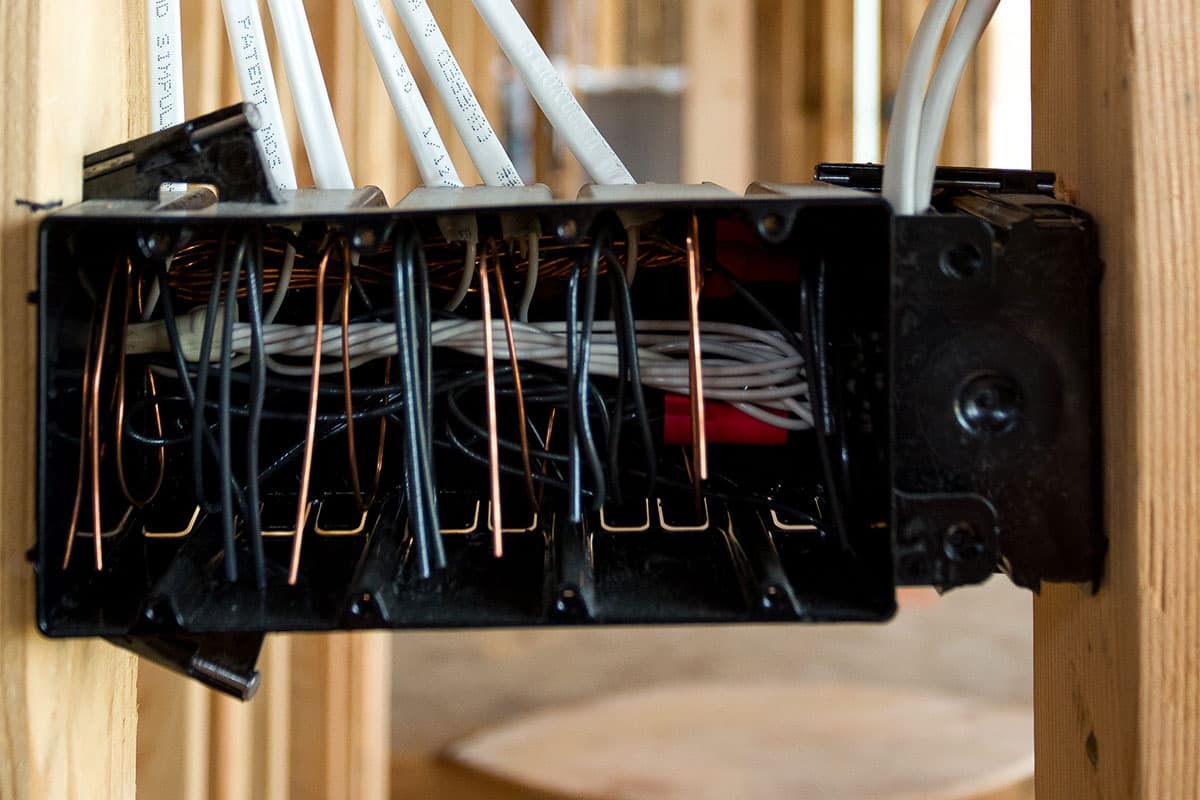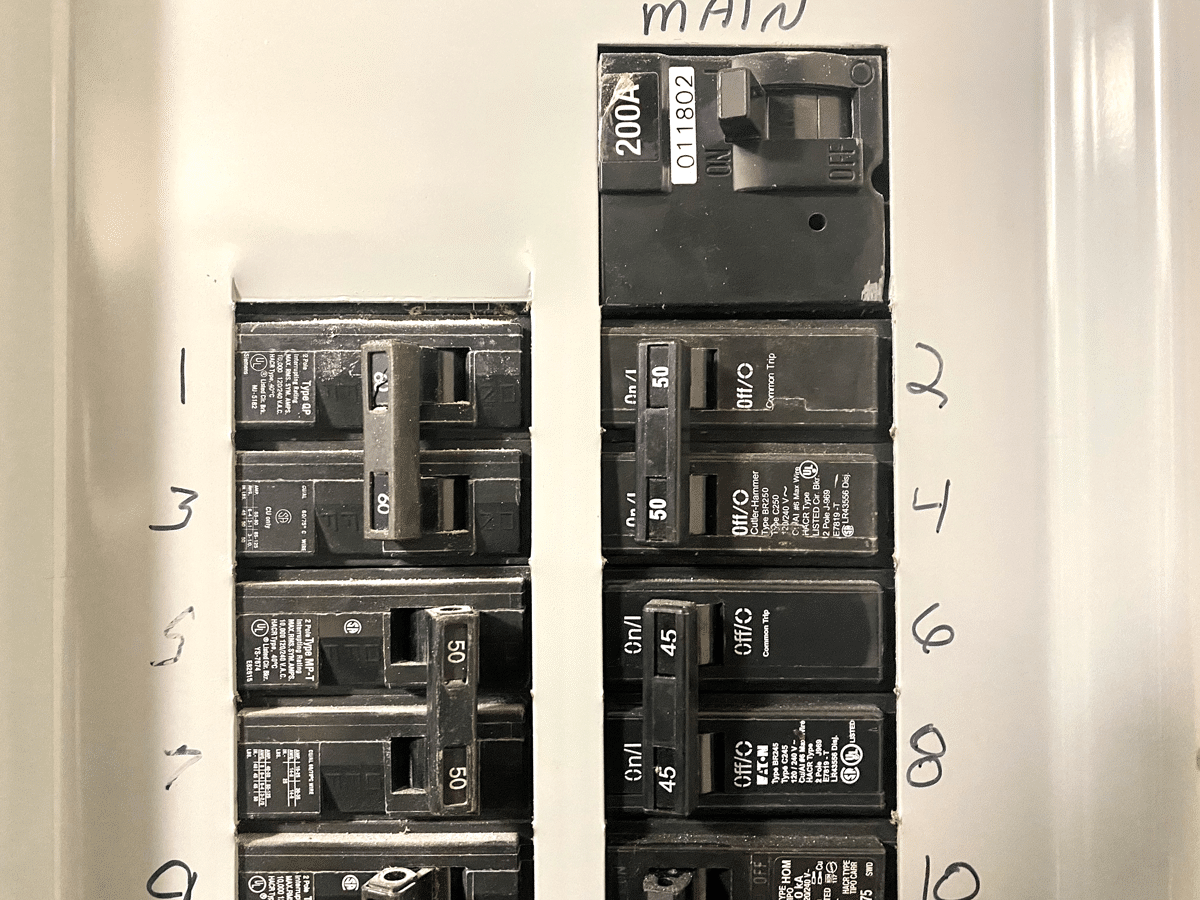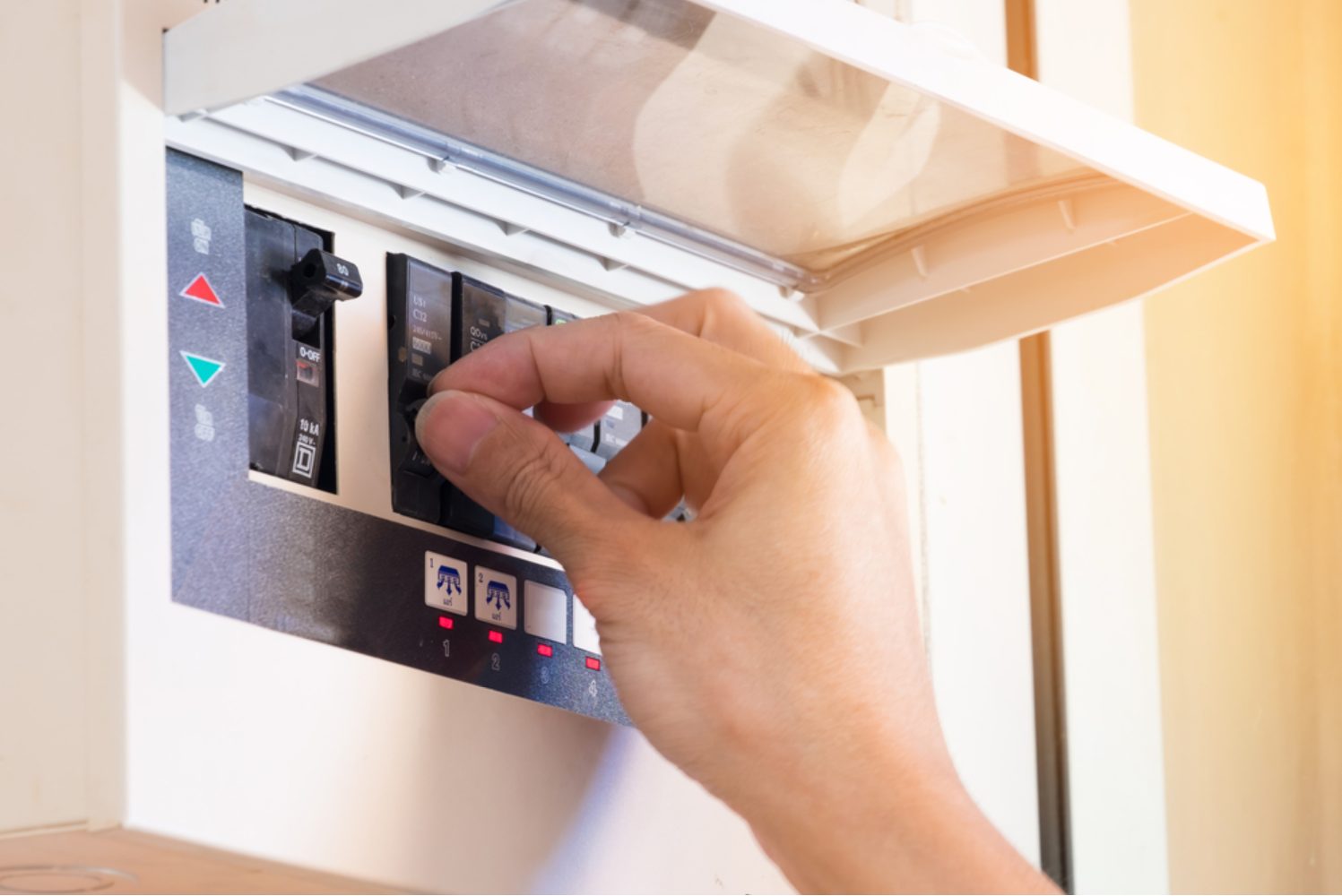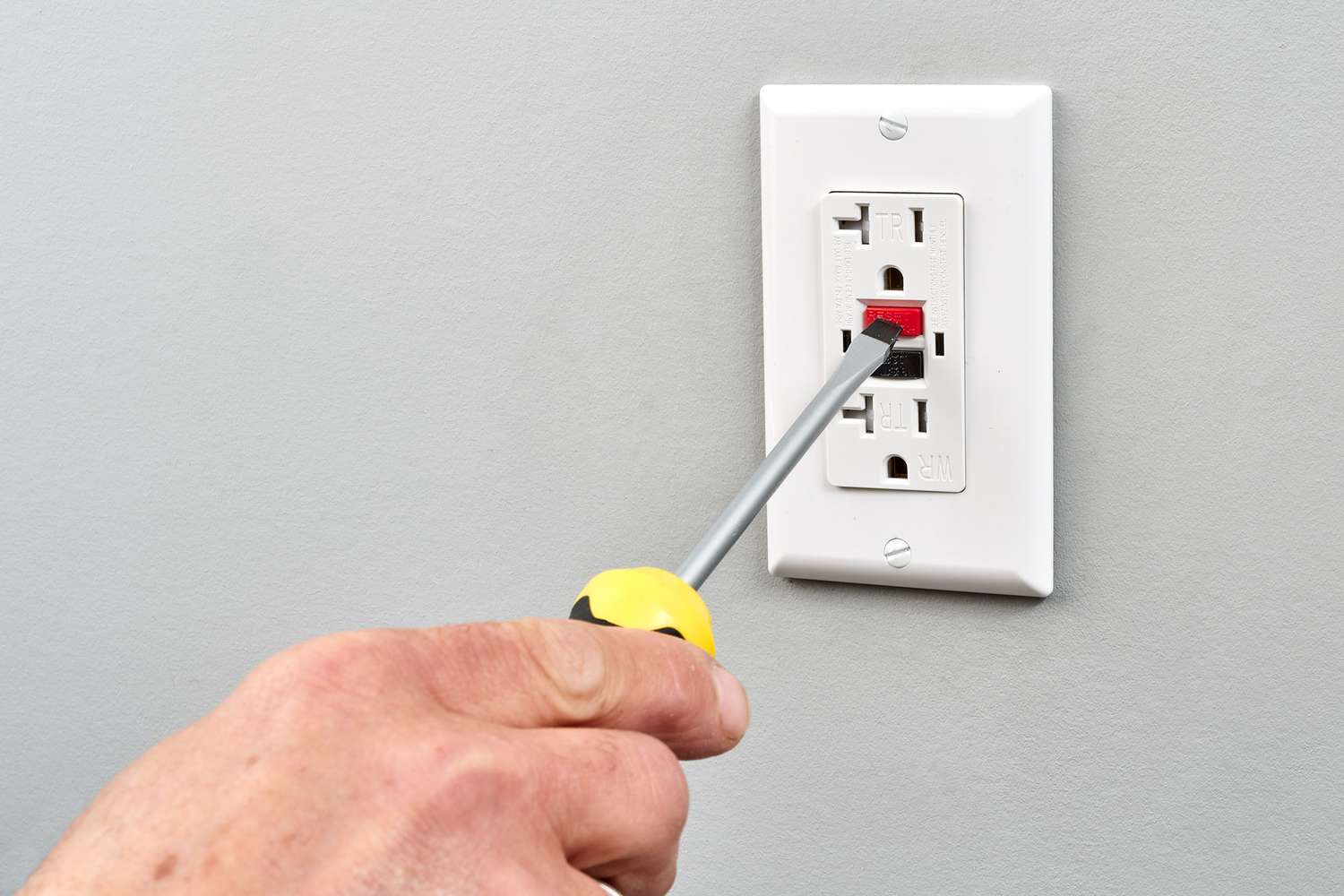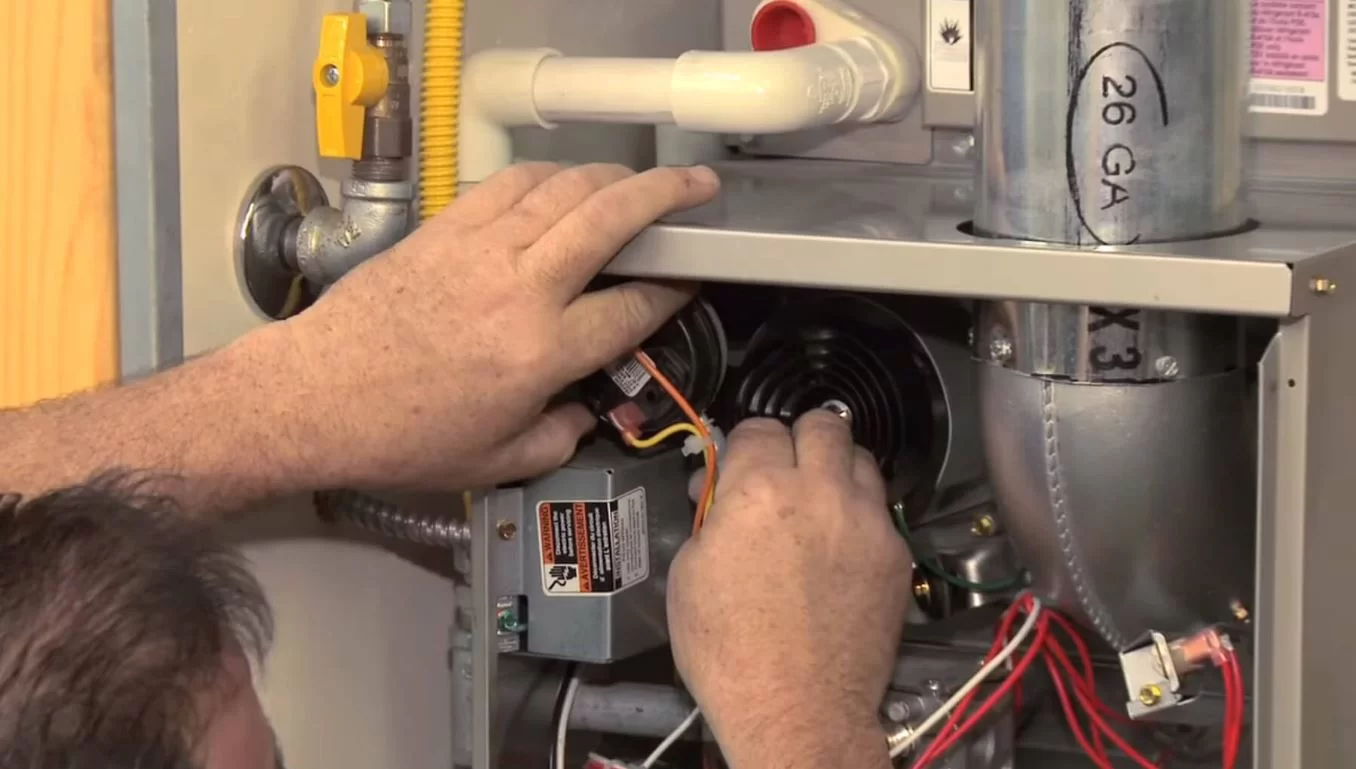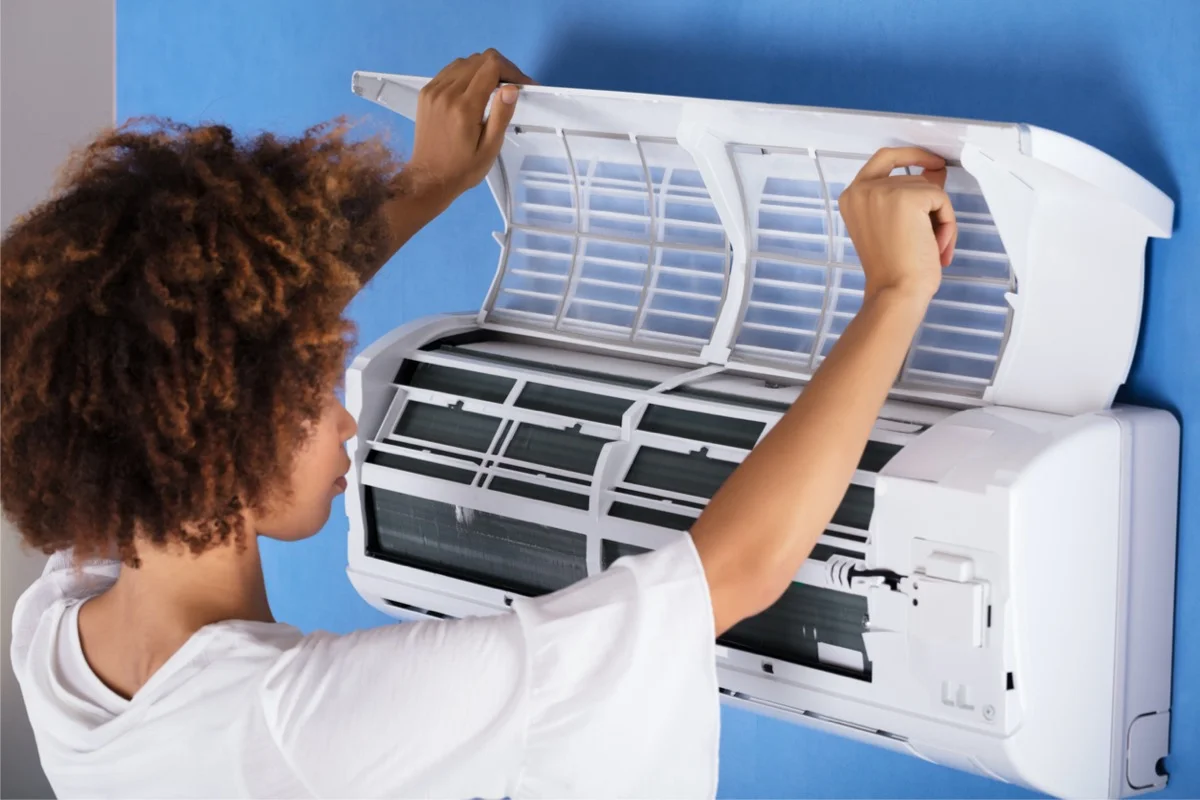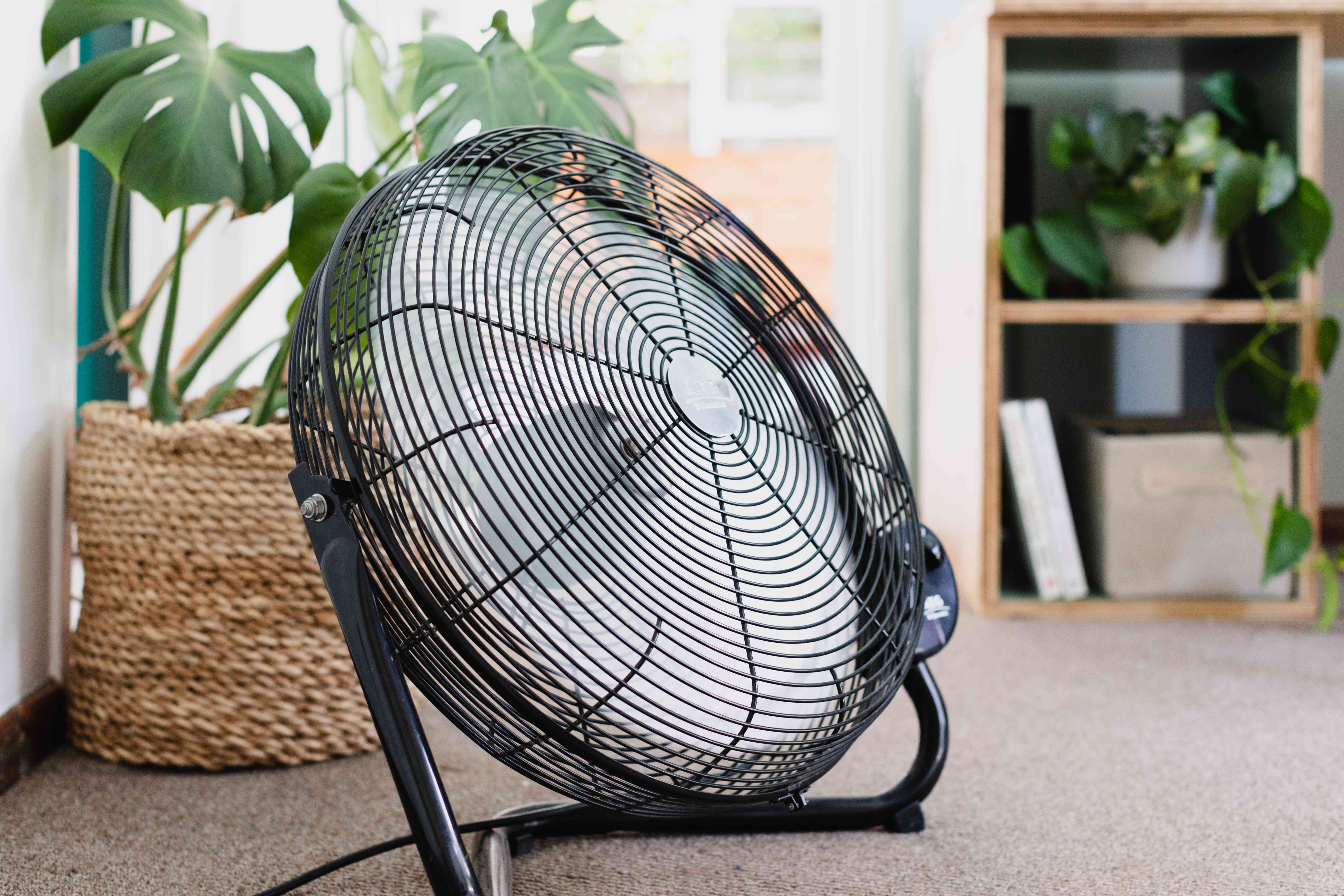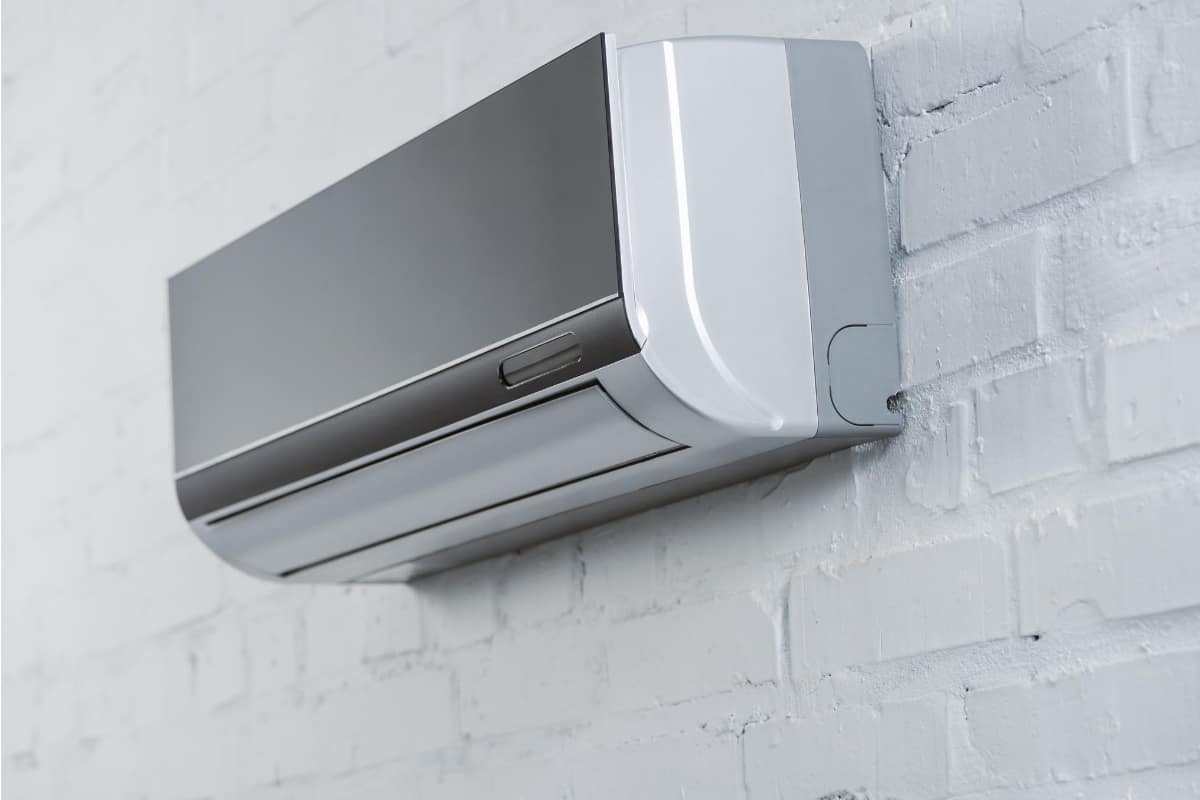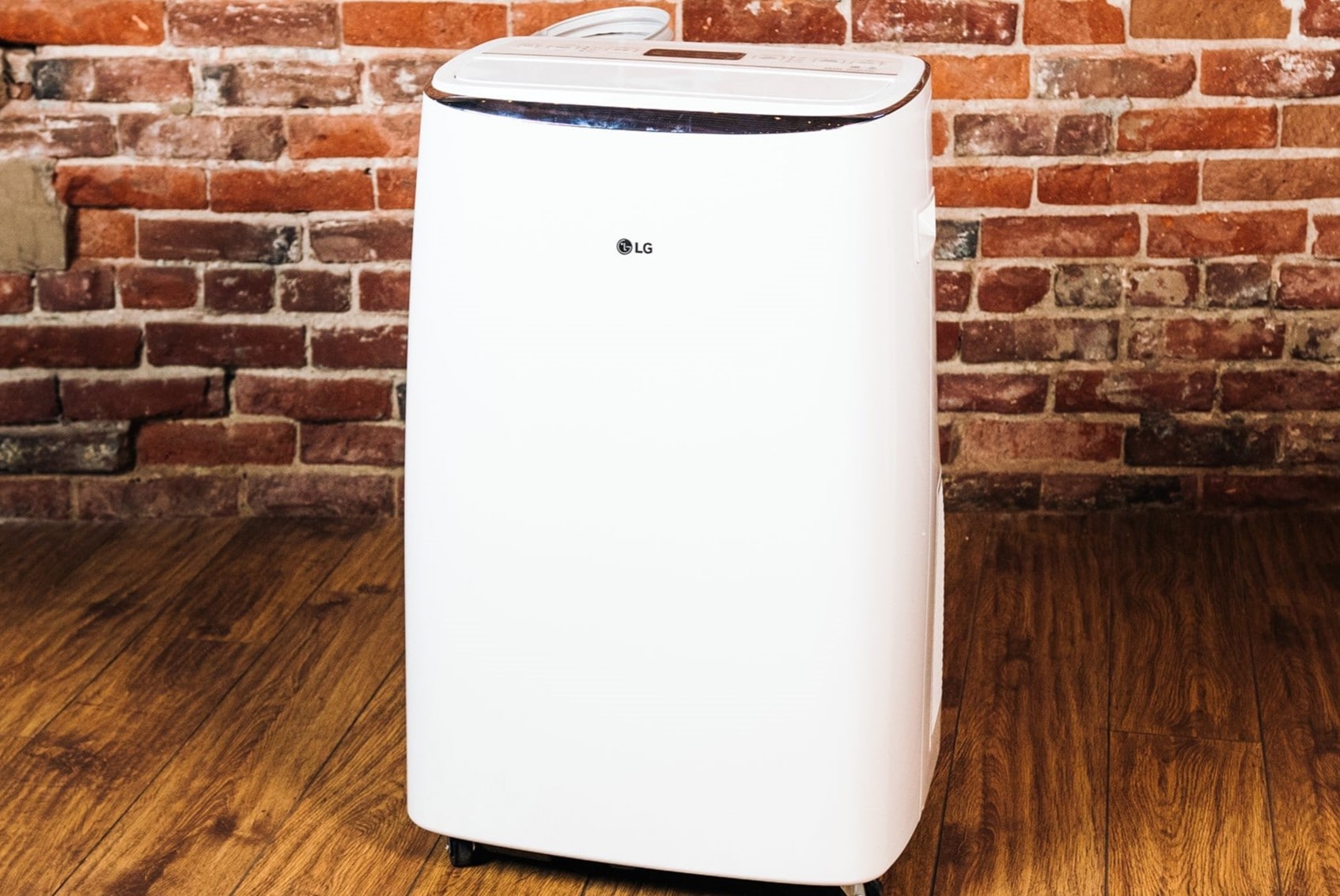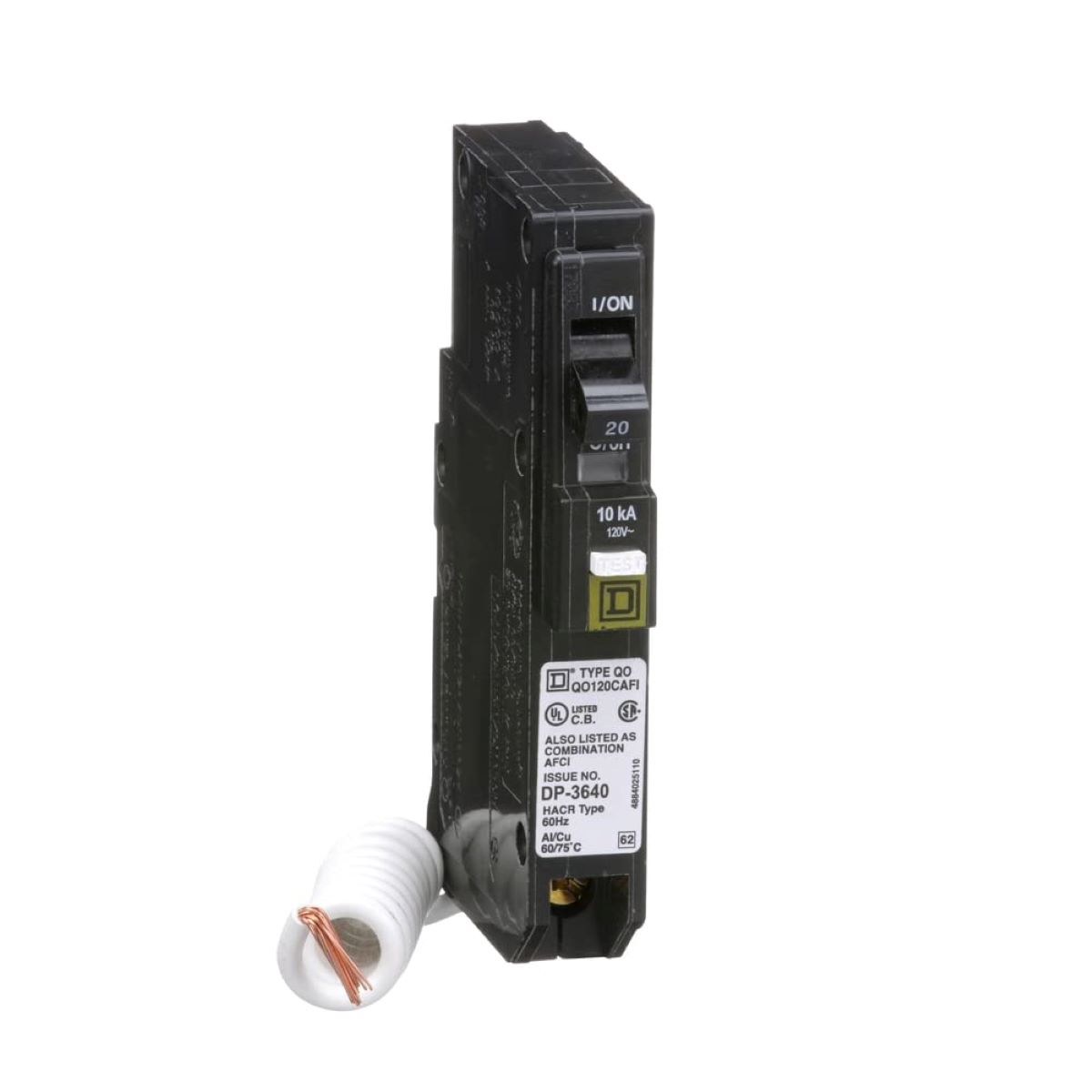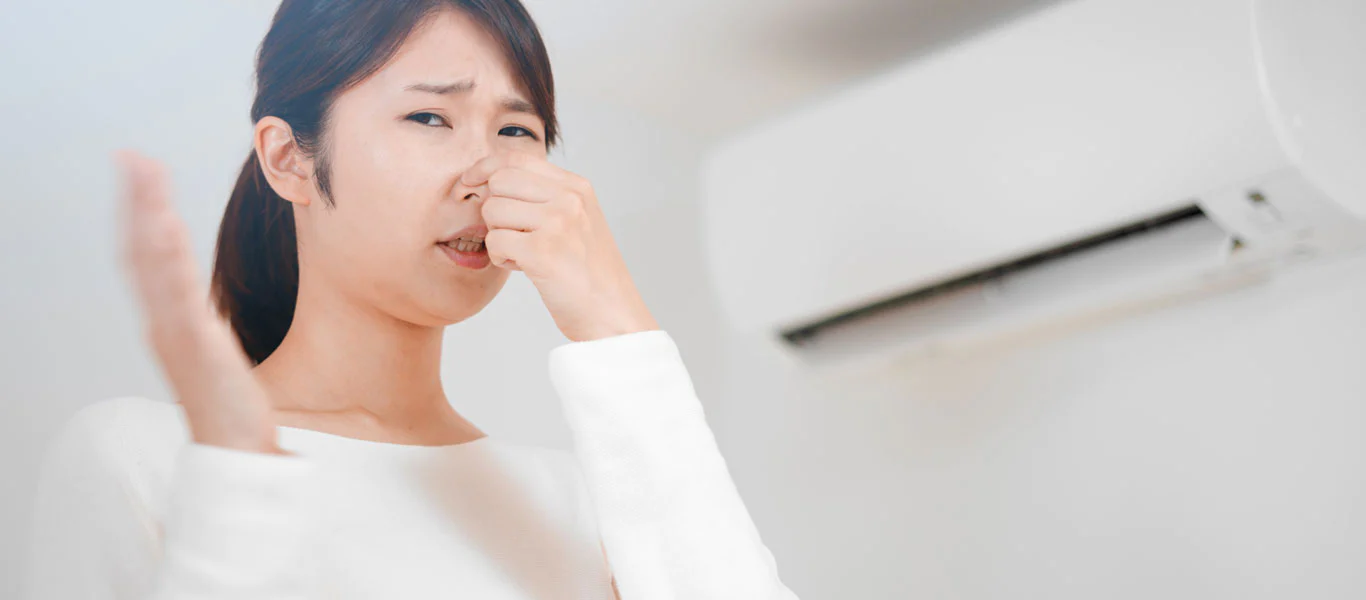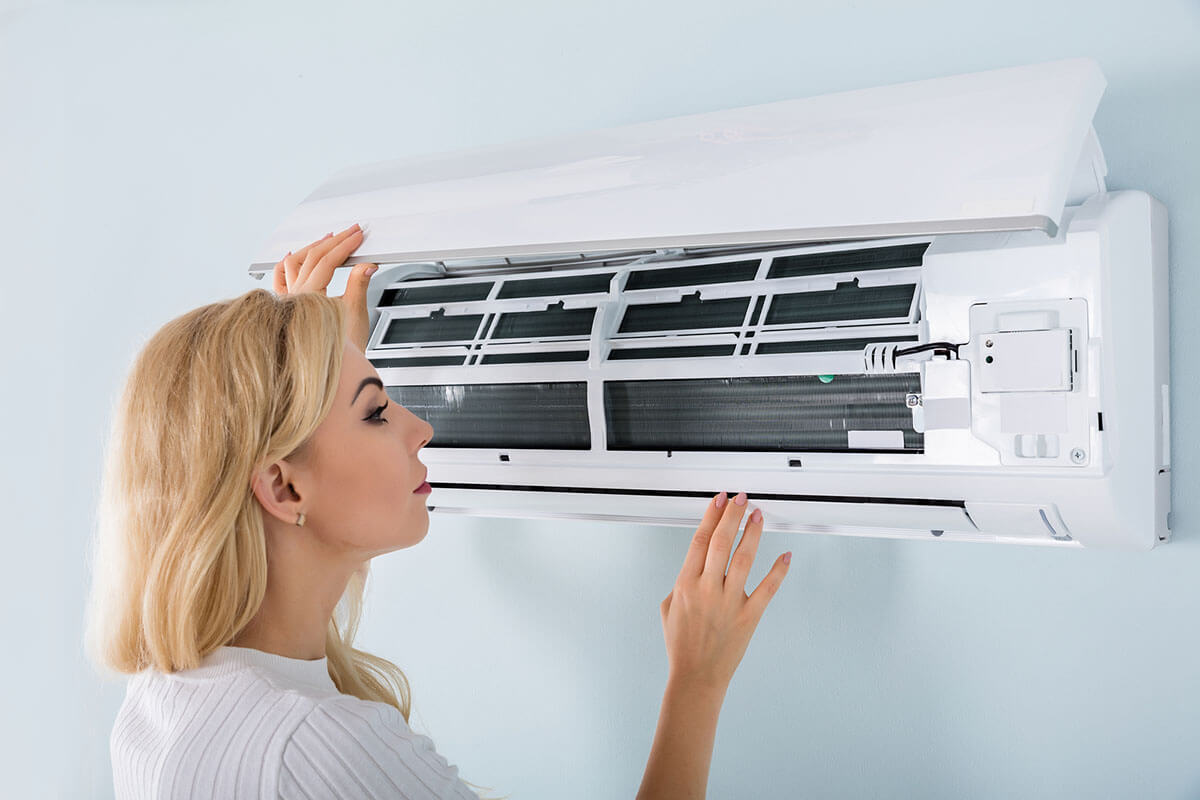Home>Home Maintenance>Why Does My Air Conditioner Breaker Keep Tripping
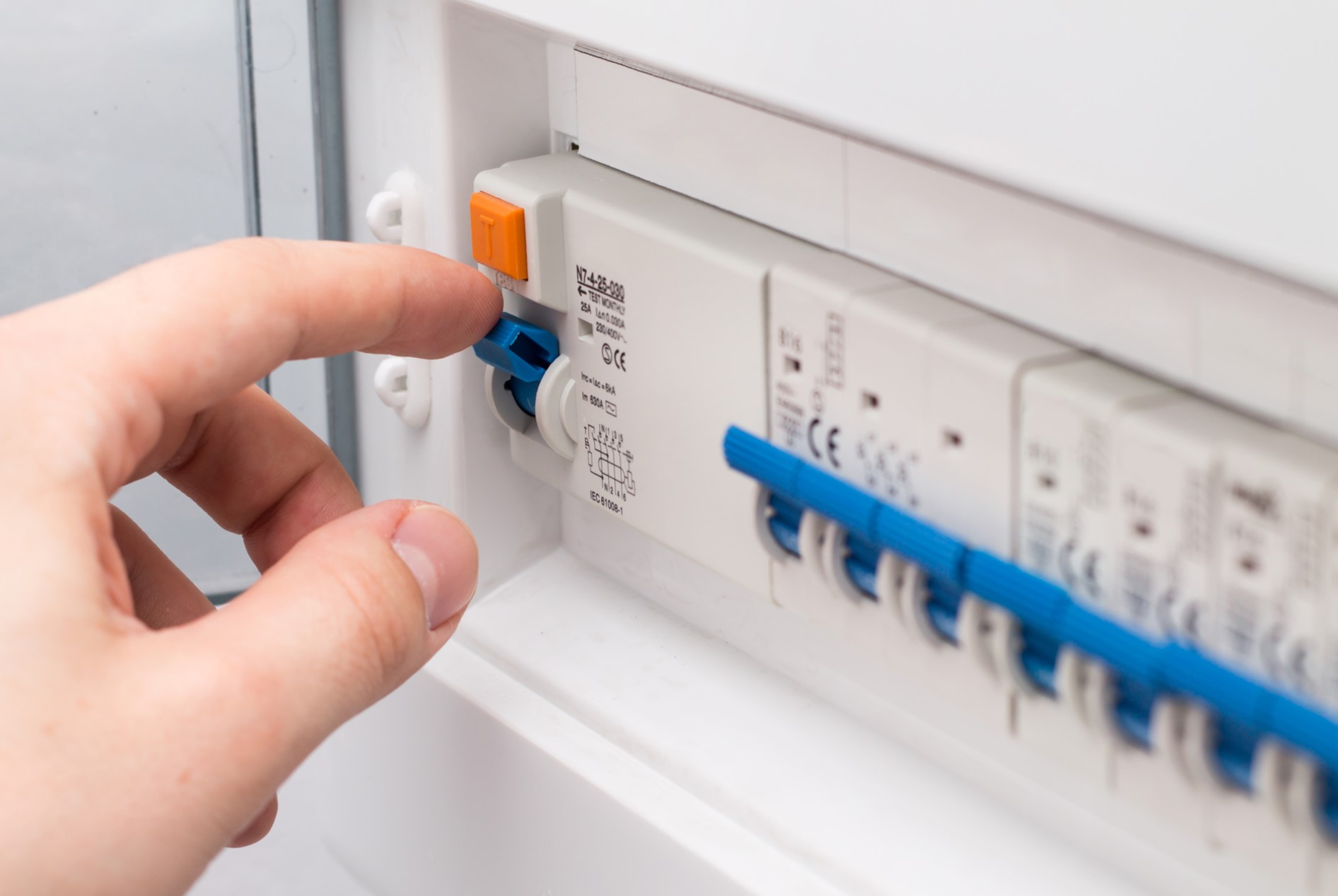

Home Maintenance
Why Does My Air Conditioner Breaker Keep Tripping
Modified: October 18, 2024
Keep your home cool without any issues. Learn why your air conditioner breaker keeps tripping and find the right home maintenance solutions.
(Many of the links in this article redirect to a specific reviewed product. Your purchase of these products through affiliate links helps to generate commission for Storables.com, at no extra cost. Learn more)
Introduction
Having an air conditioner that keeps tripping the breaker can be frustrating and inconvenient, especially during the hot summer months. If you’ve experienced this issue, you’re not alone. Many homeowners face the same problem and often wonder why their air conditioner breaker keeps tripping.
In this article, we will delve into the causes behind this recurring issue and explore possible solutions. Understanding the reasons behind a tripping air conditioner breaker can help you troubleshoot the problem or seek professional assistance more effectively.
An air conditioner breaker is designed to protect the electrical circuit from overload or electrical damage. When it senses an excessive electrical load, it automatically shuts off power to the air conditioner unit. This safety feature prevents electrical fires and other potential hazards.
While occasional trips are normal and expected, frequent trips can indicate an underlying problem that needs attention. Some of the common causes for an air conditioner breaker to trip include overloaded electrical circuits, faulty electrical components, insufficient airflow, low refrigerant levels, dirty air filters, or various electrical issues.
In the following sections, we will explore each of these potential causes in more detail and discuss troubleshooting steps and prevention strategies. Remember, if you’re unsure or uncomfortable with handling electrical components, it’s always best to consult a licensed professional to diagnose and fix the issue.
Now, let’s dive into the world of air conditioner breakers and uncover the reasons why they might be tripping in your home.
Key Takeaways:
- Air conditioner breakers trip due to overloaded circuits, dirty air filters, low refrigerant levels, and faulty electrical components. Regular maintenance and professional assistance can prevent these issues and ensure a reliable cooling system.
- To prevent air conditioner breaker trips, keep vents clear, maintain proper refrigerant levels, and avoid overloading circuits. Consulting with professionals and upgrading your electrical system can also help prevent future issues.
Read more: Why Does My AC Breaker Keep Tripping
Understanding the Air Conditioner Breaker
Before we delve into the causes of a tripping air conditioner breaker, it’s important to understand how the breaker works and its role in the electrical system.
An air conditioner breaker is a safety device installed in the electrical panel or circuit breaker box. It is designed to monitor and control the flow of electricity to your air conditioning unit. The breaker is connected to the electrical circuit that powers your air conditioner.
Inside the breaker, there is a switch that can be manually turned on or off. When the switch is in the “on” position, electricity flows through the circuit, powering the air conditioner. However, if there is an overload or electrical fault, the breaker senses the increase in current and trips, cutting off the power supply to the air conditioner unit.
This mechanism helps protect the electrical system from damage and reduce the risk of fire or other hazardous situations. When the breaker trips, it is an indication that there is an issue that needs to be addressed.
It’s important to note that not all tripping breakers are related to the air conditioner itself. Sometimes, the problem may lie in the electrical system or other appliances drawing power from the same circuit. Therefore, it’s important to properly diagnose the cause before attempting any repairs or adjustments.
Next, we will dive into the various reasons why an air conditioner breaker might trip, starting with the most common cause – an overloaded electrical circuit.
Common Causes for Tripping
There are several common causes that can lead to a tripping air conditioner breaker. Understanding these causes will help you troubleshoot the issue more effectively. Let’s explore each of these causes in more detail:
- Overloaded Electrical Circuit: One of the most common causes of a tripping air conditioner breaker is an overloaded electrical circuit. This occurs when the electrical circuit is trying to handle more power than it is designed for. In the case of an air conditioner, this can happen when other high-power appliances are connected to the same circuit. The excessive current draw can cause the breaker to trip to prevent damage to the circuit.
- Faulty Electrical Component: Another possible cause for a tripping air conditioner breaker is a faulty electrical component within the unit itself. This could be a short circuit or a malfunctioning component that is causing an abnormal increase in electrical current. In such cases, it is essential to have a professional inspect and repair the air conditioner to determine the faulty component.
- Insufficient Airflow: Inadequate airflow can also lead to a tripping air conditioner breaker. When the airflow is obstructed or restricted, the system may work harder to cool the space, resulting in increased energy consumption and potential overheating. This increased demand for power can cause the breaker to trip. Restricted airflow can be caused by dirty air filters, blocked vents, or issues with the fan motor.
- Low Refrigerant Levels: Low refrigerant levels in your air conditioner can cause the system to work harder to achieve the desired cooling temperature. This increased workload can lead to excessive power draw, which may cause the breaker to trip. If you suspect low refrigerant levels, it is best to have a professional technician inspect and recharge the system.
- Dirty Air Filters: Dirty air filters can restrict airflow and reduce the efficiency of your air conditioner. When the air filters are clogged with dirt, dust, and debris, the system needs to work harder to push air through the filters. This increased strain on the system can lead to a tripping breaker. Regularly cleaning or replacing the air filters is crucial to maintain proper airflow and prevent this issue.
- Electrical Issues: Various electrical issues within your home’s electrical system can cause the air conditioner breaker to trip. This could be faulty wiring, loose connections, or inadequate grounding. These issues can disrupt the electrical flow, leading to a breaker trip. It is important to have a licensed electrician inspect and address any electrical problems in your home.
Now that we’ve identified the common causes of a tripping air conditioner breaker, we can move on to explore troubleshooting steps and prevention strategies in the following sections.
Overloaded Electrical Circuit
One of the most common causes for a tripping air conditioner breaker is an overloaded electrical circuit. This occurs when the circuit is trying to handle more electrical power than it is designed for. Since air conditioners require a significant amount of electricity to operate, it’s important to ensure that they have their own dedicated circuit.
If your air conditioner is sharing a circuit with other high-power appliances, such as a refrigerator or microwave, it can easily overload the circuit and cause the breaker to trip. When multiple appliances are drawing power simultaneously, the total electrical load can exceed the capacity of the circuit.
To alleviate this issue, consider having a separate circuit installed for your air conditioner. This can be done by a licensed electrician who will assess the electrical capacity of your home and determine the appropriate circuit requirements for your air conditioner.
If installing a dedicated circuit is not an option, you can try reducing the electrical load on the existing circuit. Consider unplugging or turning off other appliances when the air conditioner is in use. This will lessen the strain on the circuit and reduce the likelihood of a tripping breaker.
In addition, it’s recommended to avoid using extension cords or power strips with your air conditioner. These can also contribute to an overloaded circuit and increase the risk of breaker tripping. Instead, directly plug the air conditioner into a nearby wall outlet.
Regular maintenance of your electrical system is also important to ensure its efficiency and safety. Have your electrical panel inspected by a professional regularly to ensure it is in proper working condition. They can identify any potential issues, such as loose connections or outdated wiring, that could contribute to an overloaded circuit.
By addressing an overloaded electrical circuit, you can minimize the chances of your air conditioner breaker tripping and ensure the smooth operation of your cooling system.
Faulty Electrical Component
Another possible cause for a tripping air conditioner breaker is a faulty electrical component within the unit itself. This can be a result of a short circuit or a malfunctioning component that is causing an abnormal increase in electrical current and triggering the breaker to trip.
If you suspect that a faulty electrical component is causing the problem, it is essential to have a professional technician inspect and repair the air conditioner. They have the expertise and tools to diagnose the issue accurately and safely resolve it.
Common faulty electrical components that can cause the breaker to trip include:
- Compressor: The compressor is responsible for compressing the refrigerant in the air conditioning system. If the compressor is faulty or damaged, it can generate excessive electrical current and trip the breaker. A technician can assess the condition of the compressor and determine if it needs repair or replacement.
- Capacitor: Capacitors are electrical components that help start and run the motors in your air conditioner unit. A faulty capacitor can cause an irregular electrical flow, leading to a tripping breaker. Technicians can test the capacitors and replace them if necessary.
- Fan Motor: The fan motor circulates air within your air conditioner. If the motor is faulty or experiencing issues, it can put a strain on the electrical system and cause the breaker to trip. A professional can inspect and repair or replace the fan motor to resolve the problem.
- Wiring Issues: Faulty or damaged wiring within the air conditioner can also cause a breaker trip. This can be due to loose connections, frayed wires, or improper installation. A qualified technician can carefully examine the wiring and make any necessary repairs to ensure proper electrical flow.
It is important to avoid attempting to repair or replace electrical components yourself unless you have the necessary knowledge and experience. Dealing with electrical components without the proper expertise can be dangerous and may result in further damage or potential electrical hazards. Always consult a licensed technician to address any issues related to faulty electrical components.
By having a professional diagnose and repair the faulty electrical component, you can restore the proper functioning of your air conditioner and eliminate the problem of the tripping breaker.
Insufficient Airflow
Insufficient airflow can be a common cause for a tripping air conditioner breaker. When the airflow in your air conditioning system is obstructed or restricted, it can lead to increased strain on the system, causing the breaker to trip.
Several factors can contribute to insufficient airflow in your air conditioner:
- Dirty Air Filters: One of the most common culprits of limited airflow is dirty air filters. Over time, the filters can become clogged with dirt, dust, and debris, impeding the flow of air. When the airflow is restricted, the system has to work harder to cool the space, resulting in increased energy consumption and potential overheating. This increased demand for power can cause the breaker to trip. Regularly cleaning or replacing the air filters is crucial to maintain proper airflow and prevent this issue.
- Blocked Vents: Blocked vents or registers can also hamper airflow in your air conditioning system. Make sure that furniture, curtains, or other objects are not obstructing the vents. Clear any obstructions and ensure that the vents are open and unblocked to allow for proper airflow throughout the space.
- Fan Motor Issues: Problems with the fan motor can also contribute to insufficient airflow. If the fan motor is malfunctioning or running at a slower speed than necessary, it can impede the movement of air through the system. A technician can inspect and repair or replace the fan motor to restore proper airflow.
To address issues related to insufficient airflow and prevent your air conditioner breaker from tripping, follow these steps:
- Regularly clean or replace air filters: Check the air filters monthly and clean or replace them as needed. This will ensure proper airflow and prevent the system from working harder than necessary.
- Keep vents clear: Ensure that vents and registers are not obstructed by furniture, curtains, or other objects. This will allow for unobstructed airflow throughout the space.
- Professional maintenance: Schedule regular professional maintenance for your air conditioning system. A technician can inspect and clean the components, including the fan motor, to ensure optimal airflow.
By addressing issues related to insufficient airflow, you can optimize the performance of your air conditioning system, reduce energy consumption, and prevent the breaker from tripping.
Low Refrigerant Levels
Low refrigerant levels in your air conditioner can be another cause for a tripping breaker. Refrigerant is the substance that absorbs heat from the indoor air and transfers it outside, allowing your air conditioner to cool your home.
If your air conditioner has low refrigerant levels, it means that there is not enough of this substance to effectively absorb and transfer heat. As a result, the system has to work harder and longer to achieve the desired cooling temperature. This increased workload can lead to excessive power draw, causing the breaker to trip.
Low refrigerant levels can occur due to several reasons:
- Leaks: Refrigerant leaks can happen over time due to normal wear and tear or damaged components. These leaks can result in a gradual depletion of the refrigerant levels in your air conditioning system. If you suspect a refrigerant leak, it’s essential to have a professional technician inspect and repair the system to prevent further refrigerant loss.
- Improper installation: In some cases, low refrigerant levels may be a result of improper installation. If the initial installation process did not involve proper refrigerant charging or if the system was not appropriately sized for your space, it can lead to inadequate refrigerant levels.
If you suspect low refrigerant levels as the cause of the tripping breaker, it is best to have a professional technician inspect and recharge the system. They will be able to identify any leaks, repair them, and properly recharge the refrigerant to the manufacturer’s specifications.
Regular maintenance of your air conditioning system is crucial to prevent and address issues related to low refrigerant levels. A professional technician can perform routine inspections and ensure that your system has the correct refrigerant levels, enabling it to operate efficiently and prevent unnecessary breaker trips.
Remember, handling refrigerant is a specialized task that should only be carried out by trained professionals. Attempting to recharge the refrigerant yourself or hiring an unqualified technician can lead to further damage and inefficiencies in your air conditioning system.
By addressing low refrigerant levels and maintaining the proper level in your air conditioning system, you can ensure optimal cooling performance and reduce the risk of the breaker tripping.
Check for a dirty air filter or blocked vents, as these can cause the AC to overheat and trip the breaker. Regular maintenance can prevent this issue.
Dirty Air Filters
Dirty air filters can contribute to a tripping air conditioner breaker. The air filters in your air conditioning system are designed to trap dust, dirt, and other particles from the air, preventing them from entering the system. Over time, these filters can become clogged, restricting the airflow and hindering the performance of your air conditioner.
When air filters are dirty and clogged, the system has to work harder to push air through them. This increased strain on the system can lead to higher energy consumption and potential overheating, causing the breaker to trip as a safety precaution.
To prevent this issue, it is essential to regularly clean or replace your air filters. Follow these steps to maintain clean air filters:
- Check the filters: Check the condition of your air filters at least once a month. If they appear dirty or clogged, they need to be cleaned or replaced.
- Clean reusable filters: If your air filters are reusable, you can clean them by rinsing them with water or using a vacuum cleaner to remove the dirt and debris. Allow them to dry completely before placing them back in the unit.
- Replace disposable filters: If you have disposable air filters, replace them with new ones according to the manufacturer’s recommendations. Disposable filters are typically made of paper or fiberglass material and need to be discarded when they become dirty.
Regularly cleaning or replacing your air filters will ensure proper airflow in your air conditioning system, preventing strain on the unit and reducing the chances of the breaker tripping. It will also improve indoor air quality by trapping dust and allergens more effectively.
Aside from maintaining clean air filters, it is essential to keep an eye on other potential sources of dirt and debris in your air conditioner, such as the evaporator coil and the condenser coil. These components can accumulate dirt and require professional cleaning on a regular basis. Schedule professional maintenance for your air conditioning system to ensure these components are properly cleaned and maintained.
By keeping your air filters clean and ensuring the proper maintenance of your air conditioning system, you can improve its efficiency, maintain a comfortable indoor environment, and reduce the risk of the breaker tripping.
Electrical Issues
Electrical issues within your home’s electrical system can contribute to a tripping air conditioner breaker. These issues can disrupt the electrical flow and cause the breaker to trip as a safety measure. It is important to address these electrical issues to ensure the proper functioning of your air conditioning system.
Here are some common electrical issues that can lead to a tripping breaker:
- Faulty Wiring: Faulty wiring is a common cause of electrical issues. This can include loose connections, frayed wires, or damaged insulation. When there are issues with the wiring, it can disrupt the electrical flow and lead to a tripping breaker. It is essential to have a licensed electrician inspect and repair any faulty wiring in your home.
- Grounding Problems: Improper or inadequate grounding can also cause electrical issues and breaker trips. Grounding provides protection against electrical shocks and helps stabilize the electrical system. If you suspect grounding problems, it’s important to have an electrician assess and address the issue.
- Outdated Electrical System: If your home has an outdated electrical system that cannot handle the electrical load demanded by your air conditioner, it can result in breaker trips. Upgrading your electrical system, including the electrical panel and wiring, may be necessary to accommodate the increased power requirements of your air conditioning system.
- Faulty Circuit Breakers: Sometimes, the issue may lie with the circuit breakers themselves. If the breakers are faulty or worn out, they may trip more frequently or inaccurately. A professional electrician can inspect the circuit breakers and replace any faulty ones to ensure proper functionality.
Dealing with electrical issues can be complex and potentially hazardous. It is strongly recommended to seek the assistance of a licensed electrician to diagnose and address any electrical problems in your home. They have the expertise and knowledge to safely navigate the electrical system and resolve issues effectively.
Regular maintenance of your electrical system is also crucial to identify and prevent electrical issues. Schedule periodic inspections by a professional to ensure the integrity of your electrical system and make any necessary repairs or upgrades.
By addressing electrical issues and maintaining a well-functioning electrical system, you can minimize the occurrence of breaker trips and ensure the reliable operation of your air conditioning system.
Read more: Why Does My Water Pump Breaker Keep Tripping
Circuit Breaker Problems
Circuit breaker problems can be another potential cause for a tripping air conditioner breaker. While the circuit breaker is designed to protect the electrical circuit from overload or electrical damage, it can sometimes malfunction or exhibit issues that result in frequent trips.
Here are some common circuit breaker problems that can contribute to the tripping of your air conditioner breaker:
- Overloaded Circuit Breaker: Circuit breakers are designed to handle a certain amount of electrical load. When the load exceeds the breaker’s capacity, it can trip to prevent damage to the electrical system. If your air conditioner breaker is frequently tripping, it could indicate that it is being overloaded. In this case, it may be necessary to redistribute the electrical load by spreading the appliances across different circuits or upgrading the breaker to a higher capacity.
- Old or Worn Out Breaker: Over time, circuit breakers can become worn out or lose their effectiveness. This can result in inaccurate trips or difficulty in resetting the breaker. If you have an old or worn out breaker, it may need to be replaced to ensure proper functionality and prevent unnecessary trips.
- Faulty Breaker: In some cases, the breaker itself may have a manufacturing or electrical fault, leading to frequent tripping. This can happen even if the electrical load is within the breaker’s capacity. In such situations, it is best to consult a licensed electrician who can diagnose the issue and replace the faulty breaker if necessary.
- Loose Connections: Loose connections within the breaker or the electrical panel can also cause breaker trips. When connections are loose, they can generate excess heat and result in an increase in electrical resistance. This can cause the breaker to trip as a safety precaution. An electrician can inspect the connections and make sure they are tight and secure.
If you suspect that your circuit breaker is causing the tripping of your air conditioner breaker, it is best to consult a licensed electrician. They have the expertise and knowledge to test the breaker, identify any issues, and make the necessary repairs or replacements.
Regular maintenance of your electrical system, including the circuit breakers, is important to ensure their proper functioning. Schedule periodic inspections by a professional to identify any potential circuit breaker problems and address them promptly.
By addressing circuit breaker problems and ensuring the reliability of your electrical system, you can minimize the occurrence of breaker trips and ensure the uninterrupted operation of your air conditioning system.
Troubleshooting Steps
When your air conditioner breaker keeps tripping, there are some troubleshooting steps you can take to identify and resolve the issue. These steps can help you determine the cause of the problem and potentially fix it. Here are some troubleshooting steps to follow:
- Check for Overloaded Circuit: Assess the electrical load on the circuit that powers your air conditioner. Make sure it is not overloaded by other high-power appliances. If it is, redistribute the load or consider installing a dedicated circuit for your air conditioner.
- Clean or Replace Air Filters: Check if your air filters are dirty or clogged. Clean or replace them to ensure proper airflow and prevent strain on the system.
- Inspect for Obstructions: Ensure that vents, registers, and outdoor condenser units are not obstructed by objects such as furniture, curtains, or debris. Remove any obstructions to allow for unobstructed airflow.
- Verify Refrigerant Levels: Have a professional technician inspect the refrigerant levels in your air conditioner. If they are low, they may need to be recharged or there may be a refrigerant leak that needs to be addressed.
- Check for Faulty Wiring: Examine the electrical wiring connected to your air conditioner. Look for loose connections, frayed wires, or any signs of damage. If you find any issues, contact a licensed electrician to make the necessary repairs.
- Consider Electrical Panel Inspection: Have a professional electrician inspect your electrical panel for any loose connections, faulty breakers, or other electrical issues that may be contributing to the breaker trips.
- Schedule Professional Maintenance: Regular maintenance by a professional technician can help identify and resolve underlying issues with your air conditioning system. They can clean components, lubricate moving parts, and ensure everything is functioning properly.
It is important to note that while troubleshooting steps can help you identify potential causes, some issues may require the expertise of a professional. If you are uncertain or uncomfortable with any aspect of troubleshooting or if the problem persists, it’s always best to consult a licensed technician. They have the knowledge and experience to diagnose and fix air conditioning issues safely and effectively.
Remember, safety should always be a priority when dealing with electrical components. If you are unsure or uncomfortable about any troubleshooting step, it is best to seek professional assistance rather than risking harm to yourself or further damage to your air conditioning system.
By following these troubleshooting steps and addressing any identified issues, you can work towards resolving the problem of a tripping air conditioner breaker and ensure the continued functioning of your cooling system.
Prevention Strategies
Preventing the tripping of your air conditioner breaker is possible with a few proactive strategies. By taking preventive measures, you can maintain the efficiency and reliability of your air conditioning system. Here are some prevention strategies to consider:
- Regular Maintenance: Schedule regular maintenance for your air conditioning system with a professional technician. They can perform routine inspections, clean components, lubricate moving parts, and address any emerging issues before they become major problems.
- Clean or Replace Air Filters: Clean or replace your air filters regularly to ensure proper airflow. Clogged filters can restrict airflow and lead to strain on the system, potentially causing the breaker to trip.
- Keep Vents Clear: Ensure that vents and registers are not obstructed by furniture, curtains, or other objects. This will allow for unobstructed airflow throughout your home and reduce the strain on your air conditioning system.
- Maintain Proper Refrigerant Levels: Have a professional technician inspect and recharge the refrigerant levels in your air conditioner as needed. Low refrigerant levels can cause the system to work harder, leading to increased power consumption and potential breaker trips.
- Address Electrical Issues Promptly: If you notice any electrical issues, such as flickering lights or outlets not functioning properly, contact a licensed electrician to address the problem. Timely repairs can prevent potential problems down the line.
- Upgrade to Modern Electrical System: If your home has an outdated electrical system, consider upgrading it to better accommodate the power requirements of your air conditioner. This may involve upgrading the electrical panel and wiring to ensure a stable and reliable power supply.
- Avoid Overloading Circuits: Distribute the electrical load in your home by using separate circuits for high-power appliances. Avoid overloading circuits to prevent exceeding their capacity and tripping the breaker.
- Consult with Professionals: When in doubt, consult with licensed professionals for any air conditioning or electrical issues. They have the expertise and knowledge to provide proper guidance, diagnose problems accurately, and make necessary repairs or adjustments.
By implementing these prevention strategies, you can minimize the risk of your air conditioner breaker tripping and ensure the long-term efficiency and reliability of your cooling system.
Remember, regular maintenance and professional assistance are key to preventing problems and addressing any underlying issues before they escalate. Investing in the proper care of your air conditioning system will pay off in terms of improved performance, energy efficiency, and reduced likelihood of breaker trips.
Conclusion
A tripping air conditioner breaker can be a frustrating issue that disrupts your comfort and cooling during the hot summer months. Understanding the causes behind a tripping breaker is crucial in order to resolve the issue and prevent its recurrence.
In this article, we’ve explored common causes of a tripping air conditioner breaker, including overloaded electrical circuits, faulty electrical components, insufficient airflow, low refrigerant levels, dirty air filters, electrical issues, and problems with the circuit breaker itself.
To troubleshoot the problem, we discussed various steps you can take, such as checking for an overloaded circuit, cleaning or replacing air filters, inspecting for obstructions, verifying refrigerant levels, examining electrical wiring, and considering professional maintenance. These troubleshooting steps can help you diagnose the cause and potentially resolve the issue.
In addition to troubleshooting, we also discussed prevention strategies to avoid future occurrences. Regular maintenance, keeping air filters clean, ensuring unobstructed airflow, maintaining proper refrigerant levels, addressing electrical issues promptly, upgrading your electrical system, avoiding circuit overloads, and consulting with professionals were highlighted as key prevention strategies.
Remember, safety should always be a priority when dealing with electrical components. If you’re uncomfortable or unsure about any aspect of troubleshooting or resolving the issue, it is best to consult a licensed technician. They have the knowledge and expertise to handle electrical systems and ensure repairs are done safely and effectively.
By implementing preventive measures and addressing the underlying causes of a tripping air conditioner breaker, you can maintain the efficiency, reliability, and longevity of your air conditioning system, keeping your home cool and comfortable throughout the summer season.
Investing in the proper care of your air conditioning system and seeking professional assistance when needed will ensure that you can enjoy the benefits of a well-functioning and reliable cooling system for years to come.
Frequently Asked Questions about Why Does My Air Conditioner Breaker Keep Tripping
Was this page helpful?
At Storables.com, we guarantee accurate and reliable information. Our content, validated by Expert Board Contributors, is crafted following stringent Editorial Policies. We're committed to providing you with well-researched, expert-backed insights for all your informational needs.
